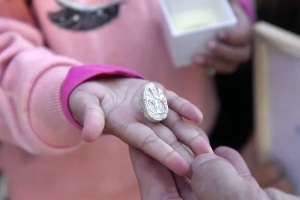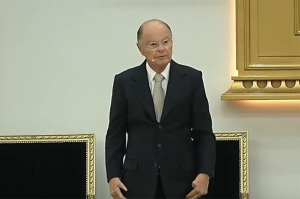World Opinion: When Some Americans Get it Wrong
Before he became a China scholar, our friend Steve Mosher was an engineer. He likes to say that if you are an engineer whose bridges collapse or whose highways break up; you're likely to lose your Professional Engineer's license. But if you are a social scientist, or a history professor and all your ideas collapse under the weight of evidence, you get tenure. And if you are a liberal journalist who gets it all spectacularly wrong, you get promoted.
Andrew Sullivan is a case in point. He waxed lyrical about the Advent of Barack Obama. Even better than the Age of Aquarius, the Age of Obama would stop terrorists dead in their tracks. Here's a famous paragraph of Andrew Sullivan in full gush mode:
Consider this hypothetical. It's November 2008. A young Pakistani Muslim is watching television and sees that this man-Barack Hussein Obama-is the new face of America. In one simple image, America's soft power has been ratcheted up not a notch, but a logarithm. A brown-skinned man whose father was an African, who grew up in Indonesia and Hawaii, who attended a majority-Muslim school as a boy, is now the alleged enemy. If you wanted the crudest but most effective weapon against the demonization of America that fuels Islamist ideology, Obama's face gets close. It proves them wrong about what America is in ways no words can.
We elected Barack Obama president in November 2008. And those young Pakistanis all swooned, right? They made sure to wear some flowers in their hair as Islamabad vied with San Francisco to host a summer of love.
Not so much. In the Year Four of the Age of Obama, only seven percent of Pakistanis had confidence in the American president. They must not be watching enough TV. The PEW poll of international attitudes toward President Obama last spring showed some more dismal results. President Obama's standing in Pakistan may have been a chilly 7% but he was little better thought of in these Muslim-majority lands:
Lebanon: 39%, Egypt 29%, Tunisia 28%, Turkey 24%, Jordan 22%
Interestingly, America's president seems to register warmer feelings-though still below freezing level-in those Muslim-majority lands to whom we do not give foreign aid. Is that a clue? If we cut them all off, would we see a rebound of U.S. respect from the locals.
That was the PEW International poll and last spring. More recently, we see this headline:
World Poll: Image of U.S. Declines.
This time, it's the Gallup organization that finds that in most regions of the world, U.S. standing in President Obama's fourth year in office has slipped. In Europe, respondents were asked if they approved/disapproved of U.S. leadership. That score dipped from 42% in 2011 to 36% last year. The Gallup Poll of 130 countries showed median approval dropped last year from 49% to 41%.
This is no partisan view on our part. We certainly do not take comfort from low ratings given for our country and its leaders by people abroad. We recall with fondness those times when it was said: "Politics stops at the water's edge."
The fact is President Obama's standing in the world is still higher than that enjoyed by President Bush. But this much should be clear: Obama has been no panacea. The over-the-top nonsense that was typical of too many writers in the run-up to the
2008 election has proven to be unfounded.
Our country's Founders appealed to "a candid world" in our Declaration of Independence. They showed "a decent respect for the opinion of mankind." We should care about what our neighbors around the world think of us.
But we should not let their view determine our policy on such vital questions as whether to stop Iran building a nuclear weapon or whether to back an Egyptian government that shows no regard for human rights, especially the freedom of
religion.
What we are likely to find-as President Eisenhower and President Reagan found-is that a strong policy of the United States that forthrightly confronts the enemies of freedom but avoids "nation building" is the best policy.
Better a Big Stick than a series of big and sticky interventions. Afghanistan, for example, is no more likely to be a functioning democracy after 12 years of U.S. entanglement than it was after six. Nor would Afghanistan be "stable' if we stayed there a hundred years. The refusal of this country to respect freedom of religion will condemn it to more centuries of barbarism. No amount of U.S. aid can help if a people believe their neighbors who worship differently should be killed. And that, unfortunately, is what Afghans do believe.
Liberals have clearly gotten it wrong on foreign policy. It's a challenge to conservatives to get it right.





























